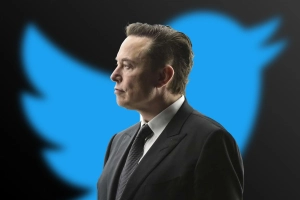How to avoid corporate embarrassment

Many people, including this columnist, complain that chief executives make bland statements that are full of corporate jargon. It becomes easy to understand why managers are addicted to waffle when a boss foolishly decides to give his employees a piece of his mind.
The latest culprit was Bill Michael, the British chairman of KPMG, a big consultancy. In a virtual meeting, Mr. Michael dismissed staff concerns about the pandemic, saying that “you can’t play the role of victim unless you’re sick. I hope you’re not sick and you’re not ill and if you’re not, take control of your life. Don’t sit there and moan about it, quite frankly.” Then he waded into the issues of racism and sexism by adding, “There is no such thing as unconscious bias. I don’t buy it. Because after every single unconscious-bias training that’s ever been done, nothing’s ever improved.”
It is possible to put a charitable interpretation on Mr. Michael’s remarks. He was hospitalised with COVID-19 himself and his definition of sickness may have included mental illness and depression. Those KPMG employees who have been spared illness are probably in a much better position than many other groups of workers. And he may have been arguing that examples of “unconscious bias” are really cases of very conscious prejudice. He followed up by saying: “Unless you care, you actually won’t change.”
But if he was going to make those points, he needed to do so in a more thoughtful and sophisticated manner. He resigned within days, as details of the call were leaked to the media.
Statements to outsiders can be as damaging as those to insiders. Perhaps the most calamitous in recent corporate history were Tony Hayward’s. Then chief executive of BP, an oil giant, he spoke on television in the wake of the Deepwater Horizon tragedy, when 11 workers died and much pollution spread in the Gulf of Mexico. “There is no one who wants this thing over more than I do. You know, I’d like my life back,” he said. The insensitive tone worsened BP’s deteriorating reputation and Mr. Hayward was soon gone.
Executives who depart from blandness to express an opinion put their careers at risk. They enjoy little upside and risk plenty of downside. If the executive is the founder, or the business is well-run, they may be spared. It helps if you apologise quickly. John Mackey, chief executive of Whole Foods, an American grocer, dubbed Barack Obama’s health-care reforms “fascist” in 2013 but quickly said he regretted his remarks. He is still in his job.
For Mr. Michael, the real killer was the way that his views appeared to insult his staff. Given that KPMG is, above all, a people business, this was a fatal mistake. The modern CEO has to behave more like a cheerleader than a sergeant-major, bucking up their troops rather than berating them. Corporate culture is a slippery concept, but if the boss addresses the staff as if they are idiots, the firm is unlikely to prosper.
By the same token, executives should be careful about the stands they take on political issues. When they cause offence, the ramifications can be widespread. Employees want to be proud of the companies they work for, and do not want to struggle to defend their job to their spouses, children or people they meet at Zoom drinks. Some will dub this “political correctness”. In reality, it is common sense. Most modern businesses will have many female employees and staff from a variety of ethnic origins. The same is true of their customers. Upsetting the sensibilities of either group is not a sensible strategy.
One thing that the utterances of Messrs Michael and Hayward had in common was that they seemed to be off-the-cuff. Arguably, Mr. Hayward had more excuse for misspeaking; he was dealing with wall-to-wall media coverage in the middle of a stressful crisis. Mr. Michael appeared to be extemporising in the middle of a long speech. The reverse of Nike’s slogan ought to apply here: just don’t do it. The danger is that top executives are often treated with such reverence by colleagues that they get an inflated view of their own wisdom. Their opinion on non-business matters is worth no more than anyone else’s.
That does not mean executives have to speak entirely in platitudes. There is nothing wrong with having strong opinions about things that are relevant to the business. Warren Buffett’s annual letter to shareholders shows how to combine shrewd observations with humour. But managers should leave the philosophical and political musings to people who stand for election.















